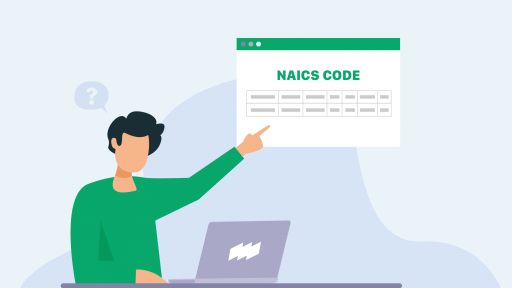As a small business owner, managing your business expenses is a major task that you cannot neglect at any cost. But what is the right way to do that? Similar to any other formal task, categorizing your expenses can simplify your financial management tasks. Some of your business expenses are ordinary, while others are necessary for accomplishing profit-making goals. On the other hand, they can be segmented into tax-deductible and non-tax-deductible expenses. Although there’s no definite guide that enumerates the potential business expenses your organization is able to deduct, several categories can help you understand your expenses in a better way. Let’s explore these categories in this article.
Why is it important to categorize business expenses?
Financial management is an integral aspect of any business. When you manage your expenses, you gain a better perspective on how and where you are spending your money. This allows you to manage your budget by taking full control of your expenses. Basic knowledge is not sufficient to manage your spending, you also need to have an extensive understanding of the entire cash flow. Categorizing business expenses allows you to keep track of where and how much to spend in each category. When you categorize your business expenses, you can proficiently identify the right category and reconcile your bank accounts for better bookkeeping.
Deductible expenses vs non-deductible expenses
Business expenses can be divided into three main formal categories – tax-deductible expenses, non-deductible expenses, and context-specific deductions. In this article, we will limit the discussion to tax-deductible and non-deductible expenses. So, let’s understand what they are and how they differ.
Deductible expenses
Any expenses considered necessary, ordinary, and reasonable are deductible. These expenses allow the business to generate revenue and are deducted from the organization’s income before annual taxation. Not all business expenses are tax-deductible as some of them are partially deductible. Examples of deductible expenses include marketing or advertising, interest, insurance, transportation, travel, delivery costs, fuel costs, maintenance, office-related expenses, and more.
Non-deductible expenses
The expenses categorized as personal are non-deductible expenses. For example, when you go out to dinner or when you fill your personal car with fuel, all these expenses fall under this category. So, the non-deductible expenses include demolition expenses, lobbying charges, fines and penalties, political contributions, etc. In addition, it is not feasible to deduct capital expenses in a lump sum. These expenses depreciate, and it is possible to deduct depreciation costs.
Common types of business expenses
Based on the type of business you run, you will be able to deduct the following expenses. However, most large and small-scale businesses bear these expenses, no matter what goods or services they deliver.
Advertising and marketing
Money that you spend on advertising and marketing your business, such as television ads, newspaper ads, billboards, or digital magazines. These expenses also include spending on social media campaigns, paid search, sponsored content, video ads, digital displays, etc.
Payroll and employee benefits
One of the largest, yet most important business expenses that every organization bears are employee salaries. Moreover, the additional compensation benefits that employees get other than wages, such as group health insurance, paid vacations, childcare, retirement contributions, education, and training, come under this type of business expense category.
Meals and entertainment
Though you cannot include your personal meal charges, your lunch or dinner expenses as well as a visit to Starbucks for discussion over a business project fall under this category. Anything that your company or management spends on entertaining a business client can be included in the entertainment expenses as well.
Office expenses
Costs that are necessary to run a business, such as purchasing new office equipment or buying laptops for employees, can be categorized as office expenses. Other than that, spending on office supplies such as printer cartridges, pens, pencils, papers, staplers, and other stationery is also included.
Travel
If an employee travels for a business meeting, conference, or any other office event, the business incurs the costs of the travel. Any sales trip is also included in this category. The travel business expenses, including the cost of airfare, accommodation, transportation, laundry, and phone calls, fall under the travel category.
Utilities, rent, and phone
The cost that your business incurs for renting office space is included in this business expense category. The bills you pay, such as phone bills, utility bills, and maintenance costs, are also covered. If you are paying any real estate taxes on the building you lease or rent, the cost can be included in the utility expense category.
Professional services
If you hire an expert for training purposes, freelance contracts, or other business operations, your organization incurs the cost. The fee you pay to a certified public accountant (CPA), lawyer, financial planner, and other specialized professionals is covered under professional business expenses.
Insurance
When running a business for profit, it is feasible to deduct business insurance costs from taxes. You can even include it if it is ordinary or necessary. A necessary business expense is something that your business needs to spend to run operations and processes. On the other hand, ordinary expenses are the type of spending common to your industry.
Education and training
The tax department allows businesses to deduct education and training expenses. Anything that your business pays for tuition, books, training material, tutorial preparation, laboratory fees, or similar purposes falls under this category. You can also deduct costs for preparing copies of the training material or traveling to the training venue.
Maintenance and repair costs
Other expenses that happen infrequently are covered by the business. Examples of these expenses include vehicle repair costs, building repair and maintenance charges, and office equipment repair costs. In general, money that you spend on repair and maintenance services falls under business expenses.
Register your US company online with Workhy
If you are looking to establish your business in the US from anywhere in the world and want to simplify the company formation process, contact Workhy. You can also get professional support from Workhy for bookkeeping, financial process management, tax filing, online bank account opening, and business address registration services. Click here for detailed information.







